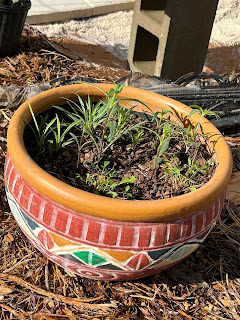 |
| Enjoying the cooler shade as we learn about designing guilds and selecting plants. |
Link to Database. The most up-to-date version of the database will always be available in the left sidebar of this site under Gardening Resources.
We’ll be adding to and refining the database as we continue to grow in our small food forest (just 40’ x 70’) in the VegHeadz garden in Tallahassee. In this small space we have over 50 species of plants including over 10 sub-canopy size fruit trees. We hope this information may be of use to you in selecting plants for your landscape, garden, or food forest.
In case you think you don’t have room for a food forest, consider watching this brief video about some tiny food forests, any one of which might fit in your space. Thanks to Lorraine, one of our gardeners, for finding this resource. Small Food Forests and Pocket Forests






















